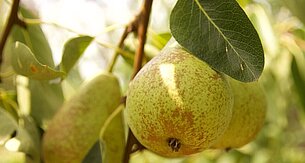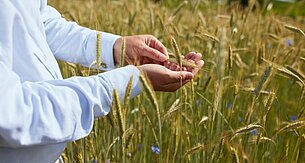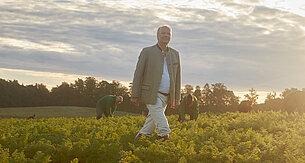Protection of climate and waters
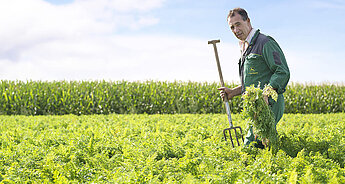
Thanks to the HiPP organic cultivation, 15,000 ha of soil and groundwater are protected annually from over 4,000 tonnes of artificial fertilisers and 5,000 kg of pesticides.
HiPP organic cultivation protects against artificial fertilisers and pesticides in a year:
15,000 ha of soil = 1.6 x the area of the island of Sylt
122.5 million m³ of rain water = 4.9 x the amount of water in Lake Titisee in the Black Forest
Use of renewable resources
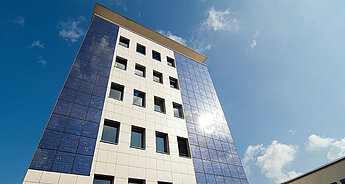
Sustainable use of resources and protection of biodiversity are central to our sustainability management.
HiPP had already made a significant contribution to climate protection long before politics formulated the goal of reducing CO2. Since 1995, we have converted the entire energy supply in the works at Pfaffenhofen to renewable energy sources (green electricity, biomass, solar power) and now produce products CO2-neutrally. Over 90% of energies used at Pfaffenhofen come from renewable energy sources.
The CO2 emissions from the remaining energy sources from fossil fuels (e.g. on business trips) are compensated for with worldwide climate projects.
Since 2001, the entire heat, hot water and steam demands in the HiPP factory have been covered by the use of biomass (wood chips). For the exemplary use of renewable energies HiPP was awarded the “German Solar Award” in 2011.
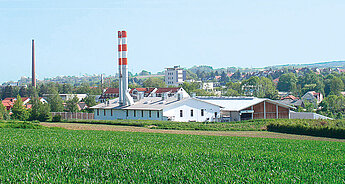
We work with “green electricity” from hydroelectric power stations – without nuclear power. Since 2000, 6 solar projects have been realised, which produce a total of 52,800 kWh/a from solar energy on a collector surface of 436 m². All organic waste goes to agricultural biogas plants. Every year 2 million kWh of electricity is generated in this way.
Water as the most important resource in the 21st century
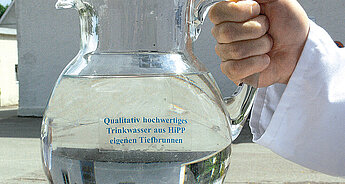
We also deliver groundbreaking impulses for the resource of water. In order to save this increasingly valuable commodity, HiPP has used technical innovations to lower its use of water by more than two thirds in the last three decades.


